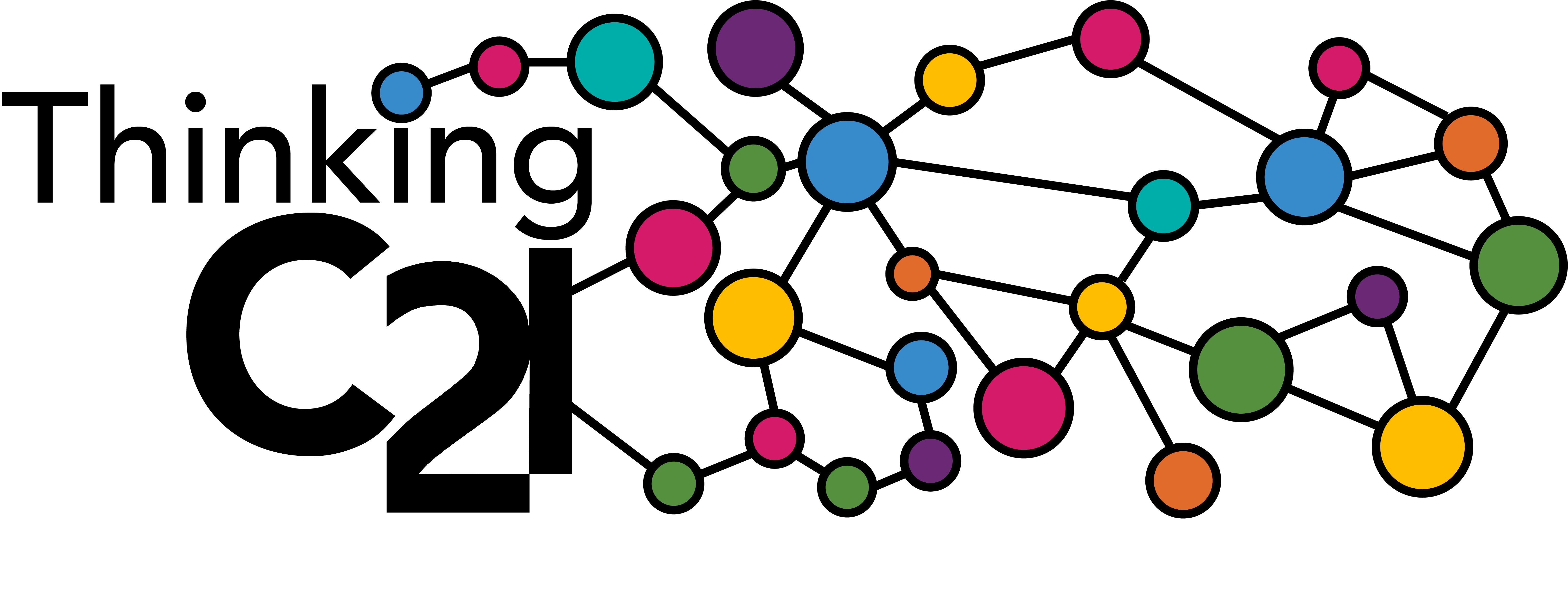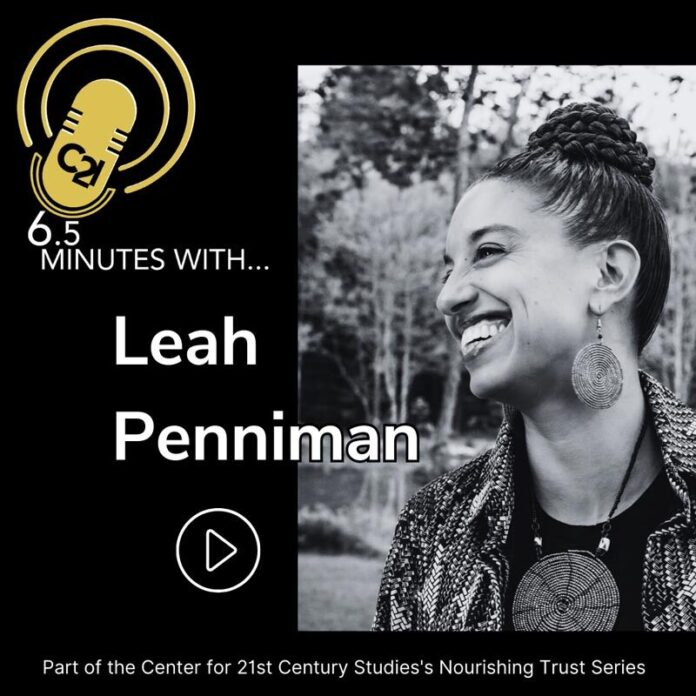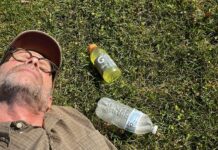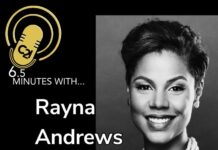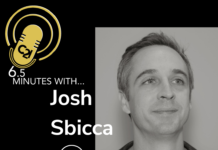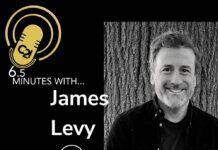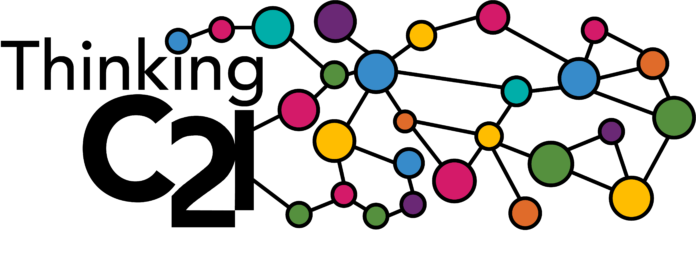Leah Penniman, co-founder, and co-director of Soul Fire Farm talks about Black Earth Wisdom – Penniman’s newest collection of essays and interviews that speaks to the multidimensional scientific and spiritual expertise of Black environmentalists.
Transcript of the podcast:
Joshua Rutherford:
You’re listening to 6.5 Minutes with C21, an audio introduction to the topics, experts, and leaders who take part in the conversations hosted by the Center for 21st Century Studies. I’m Joshua Rutherford, graduate fellow at the Center. Recently, Deputy Director, Nicole Welk-Joerger, spoke with Leah Penniman, founding Co-Director and Farm Director of Soul Fire Farms, and author of Farming While Black and Black Earth Wisdom.
Nicole Welk-Joerger:
How did you get to your most recent book project, Black Earth Wisdom?
Leah Penniman:
It was important to me to uplift the noble and dignified and brilliant Black agrarian contribution to our modern, regenerative movement. And one of the important historical figures in Black agrarianism is, of course, Dr. George Washington Carver out of Tuskegee University in Alabama. Arguably the founder of the modern regenerative movement, he advocated for cover cropping, soil health, crop rotations, mulch and composting, generations before it was a mainstream conversation. And something that fascinated me in the research was a tiny anecdote about where he got these ideas. He talked about getting up in the pre-dawn hours and going out into the forest to talk to God through the trees, the flowers, and the soil. And he credits all of his inventions and his ideas through tuning into nature as his broadcasting system. There was a spiritual component to that connection. And so, I became fascinated by this idea of Black community connection to the Earth as a sacred source of inspiration and wanted to talk to folks who still remember how to hear the voices of the Earth, who still speak the languages of the Earth. So, I called a few elders — you know, Mama Claudia, Dr. Lenny Sorensen — asked them “What is the Earth saying to us, and who else remembers how to hear?” And two interviews quickly became ten, then twenty, then thirty, then forty. I had to stop somewhere, and so, Black Earth Wisdom is a compilation of those interviews, as well as original essays and poetry related to the theme of our ability to listen to the Earth.
Nicole Welk-Joerger:
That is incredible. And how many contributions are our total in this anthology?
Leah Penniman:
There are forty interviews that comprise this anthology, and of course, so many more that couldn’t fit. So, there’s an accompanying directory online that lists over 100 Black-lead environmental organizations and individuals.
Nicole Welk-Joerger:
Could you expand just a little bit more on how this anthology is related to the work of Soul Fire Farm?
Leah Penniman:
The mission of Soul Fire Farm is to uproot racism and seed sovereignty in the food system, which is a huge job. And there’s three basic ways we do that. We grow a whole lot of food using Afro-Indigenous practices, and we distribute that food and medicine at no cost to the doorsteps of people who need it most in our community. We also educate, equip, and inspire the rising generation of Black and Brown farmers through on-farm and virtual programming, and now an eighteen-month fellowship that supports folks in getting their business off the ground. And then the final area of work we do is we rabble-rouse for systems change. We work on policy and institution building to stand up for farm workers, for Black farmers, and for the Earth herself. And Black Earth Wisdom fits into this because it links to the underlying values that drive our work. We don’t see the Earth as separate from the people who work the Earth. We adhere very much to the concept, the Indigenous concepts of kinship ecology that transcend both Turtle Island Indigenous communities, as well as Black Indigenous communities, and are perhaps best exemplified in a story I like to tell of my mentors in Ghana, West Africa, who are the queen mothers. And when I was working with them in my early twenties, they admonished me, really, saying like: “Is it true in the United States that many farmers will put a seed in the ground and they won’t pray or sing or dance or say thank you to the seed, and then they expect it to grow and nourish them?” And understanding that is, unfortunately, very rare in the West. They said: “Well, that’s why you’re all sick, right? You’re all sick because you treat the Earth as a thing and not a being.” And so, we can talk all we want about techniques, but the underlying ethos of understanding that the Earth is not an environment or a resource to be exploited, but actually as part of our family. That ethos is what will fundamentally change the way we interact with land and ensure the survival of humankind alongside all species. And so, we’re hoping for an ethical shift, and that Black Earth Wisdom will be part of that ethical shift.
Nicole Welk-Joerger:
Is there like one interview, or a couple of interviews, that you’re super excited about to point readers to as they’re flipping through this book?
Leah Penniman:
I feel really excited about the first chapter where I interview spiritual leaders who practice Indigenous African religion. They explain in lucid clarity how trees and rocks and waterfalls are actually deities. And that as long as you forget that a forest is a deity, it’s very easy to destroy it, and when you remember it’s divine, it’s impossible, right? And so, I feel like that’s an important chapter. And then another chapter that really moved me, I interviewed Audrey Peterman who’s a Black elder from Jamaica who’s visited almost all of our National Parks. She talked about how, you know, there was a time period when many of us spoke the languages of the Earth. We knew how to look at the sky, the stars and we knew which way was North. We knew what the weather would be tomorrow, the season, the calendar date that we’re in. We could listen to the song of the birds and know if danger was on the horizon. But so few people now are tuned into those primary sources. And so, we’re in a dangerous game of telephone where the messages we get are quite distorted as they’re passed from person to person, and that an important part of our survival will be to relearn the languages of the Earth as primary source. So, that was a very moving interview as well.
Nicole Welk-Joerger:
What is your definition of food justice?
Leah Penniman:
Well, for us in the Soul Fire community, food justice goes beyond just having access to enough calories. Food justice is about infusing democracy into every stage of the food system. “From sunshine to plate” as my daughter Nashima would say. So, whether we’re talking about seed sovereignty, land reform, Indigenous land back, the rights of farm workers, the rights of people to access safe, culturally appropriate, healthy, affordable foods in their neighborhoods. That’s all part of food justice. So, if you envision sunshine traveling all the way to your plate and examine each of those stages, we get to ask ourselves: “Is there fairness? Is there democracy? Is there equity in this stage?” And if you answer yes to all of those things, then we’ve achieved food justice.
Nicole Welk-Joerger:
Here at the Center, we’re exploring themes of justice and trust. How might we want to think about the relationship between trust and food, more generally?
Leah Penniman:
I love this question. I think of trust as very rooted in relational intimacy and love. So, when I think about what it is to build a trust based food system, it implies that we’re in relationship with each other. It implies that I know who grew my food, that I know who cooked my food, that I’m sitting down at the table with beloveds to consume that food. In a similar way, our relationship with Earth is bound up in our capacity to love. We only protect what we love. We only conserve what we love. This means that from a very young age, we need to infuse intimate relationship into aspects of our food system. That young people have an opportunity to grow their own food, to feed one another, to learn the stages of nourishment of their own communities. And through this relationship, trust builds, love builds, intimacy builds, and that redefines our food system in a relational way versus a transactional way.
Joshua Rutherford:
To further engage with this interview, other conversations, and the participatory research and reading activities for Nourishing Trust, please visit our website at uwm.edu/c21. If not there, we hope to catch you when you have another 6.5 Minutes to spare.
